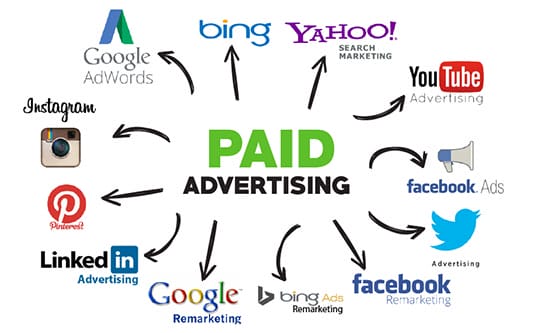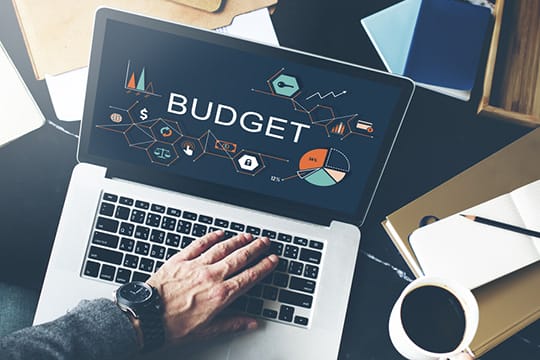The coronavirus – the virus that has caused more economic disruptions than the great depressions, continues to wreak havoc on the global economy. Initially, mandatory social distancing and quarantines completely shuttered down businesses. People were restricted to their homes, terrified of going out they resorted to online buying.
Although the world is slowly reopening, it’s far from normal, in Europe, countries are reopening governmental institutes, educational institutes, restaurants, cafes, and public places; however citizens must still follow SOPs, national and international travel is heavily monitored and restricted, and trade channels remain disrupted.
Similarly, in Asian countries, the government is practicing smart lockdowns to manage the spread of the virus. Governments have opened markets, but most public places and institutions remain close. Similarly, hot spot residential areas are instantly locked down for 14 days when cases.
The unpredictability of the virus, the lack of a vaccine, and the fear of a resurgence have made the whole world shift towards the online market place making digital marketing more important than ever. Brands are relying on online business sales to keep their businesses going; apart from eCommerce, Telehealth, Tele-education, and telework are the new norm.
The consumer’s whole life has gone online, and this trend is changing consumer behavior and preferences. Experts predict that the consumer behaviors adopted during the pandemic may last even after the pandemic. Therefore, businesses gain a lot from investing in digital marketing. Not only would it help them survive the pandemic, but it will also help them thrive once it’s over.
Let us dig inside the phenomenon of digital marketing which is the lifeblood of every brand at this crucial time:
Online Paid Advertisement

Just like buying ad space in a newspaper or a billboard, online paid advertisement refers to any form of advertising in which you have to pay for the advertisement. Google Ads, Yahoo Ads, and Facebook Ads, etc., are some popular examples. Companies purchase ad space from search engines, social media sites, websites, and blogs to increase the visibility of their brand.
Experts revealed that ROI is significantly higher with paid ads during the corona hit in comparison to the pre-corona situation. Since consumers are using the internet to search for the services they want, it makes sense to invest in online marketing to direct them towards your brand.
Online paid advertisements increase the effectiveness of a marketing ad by reducing PPC and targeting the right people.
Recommended for you: How AI is Re-Shaping Healthcare Industry in the Corona Times?
Low Conversions, What’s the Solution?
Companies reported a lowered conversion rate at the beginning of the pandemic; people were visiting sites, but they were not purchasing anything. This happened because of misleading intent. For instance, during the pandemic, people searched for flights a lot, but that was only because they wanted to cancel their flight.
A significant volume of people who searched for air flights was not interested in buying air tickets at all, and that increased the cost of a brand’s PPC marketing. To solve this problem, brands must identify negative keywords to inform Google not to show your business when people search for that keyword.
The second cause of low conversions is reduced consumer demand. Purchasing power has declined since the onset of the pandemic. Millions have lost their jobs, others are unsure of their job security, and so people are only looking to buy necessities rather than luxury items. For instance, a service providing carpet cleaning reports that they experienced a sharp decline in residential cleaning services during the pandemic.
People were afraid of the virus, and so they did not want strangers in their homes. This same behavior is true for fewer visits to the salon, the hospital, the bank, and so on. Even when the services opened, people were reluctant because they just did not want to catch the virus.
Paid advertisements help sort out these misleading leads and helps direct potential leads to the business website, thus increasing the effectiveness of the marketing campaign.
Digital Marketing Budget

Due to the pandemic, companies have reevaluated their marketing budgets. Many have decreased their marketing spending by 40% to 70%. Most of them have halted all offline marketing activities and doubled down on digital marketing.
Social media campaigns, SEO, content marketing, affiliate marketing, and digital paid advertisements, and digital ads are some of the best tactics to invest during this crucial time. B2B brands are also not an exemption in this case. Online resources are in use to generate leads in place of events, workshops, and seminars. Thus, the focus of the entire marketing effort is towards online digital marketing.
But what about the brands with a low marketing budget? How will those brands manage who do not even have the budget to plan events and get into massive offline marketing? These brands can still stay alive with free online marketing tactics. With a few efforts and consistency, they can reap the benefits in no time. Let us learn a few of them:
SEO
 Even if you are running a small business from home, you can still reach a huge audience through the right SEO strategy. This tool of digital marketing is amazing in grabbing your targeted audience. However, you need to be patient, as SEO is not magic. It will take time, but consistent efforts will give you matchless results. You just need to hire an SEO specialist who is aware of the ins and outs of SEO tactics. Get your website, social media pages, and blogs optimized and see great results.
Even if you are running a small business from home, you can still reach a huge audience through the right SEO strategy. This tool of digital marketing is amazing in grabbing your targeted audience. However, you need to be patient, as SEO is not magic. It will take time, but consistent efforts will give you matchless results. You just need to hire an SEO specialist who is aware of the ins and outs of SEO tactics. Get your website, social media pages, and blogs optimized and see great results.
From big to small scale businesses, everyone has now revamped their marketing plans, and the focus is now on SEO. Since the world is spending their life on the internet, SEO is ideal to stay alive in front of potential clients. However, brands need to alter their keywords and SEO strategy as per the current situation.
You may like: How More Companies are Venturing in Digital Transformation in the Wake of the Health Crisis?
Social Media Campaigns
 No matter what the worldwide condition is, social media campaigns are always helpful. Today, brands are designing their campaigns in light of the corona pandemic. The same is the case with the content strategy. Today, content marketers are developing content concerning coronavirus as the whole world is searching for it.
No matter what the worldwide condition is, social media campaigns are always helpful. Today, brands are designing their campaigns in light of the corona pandemic. The same is the case with the content strategy. Today, content marketers are developing content concerning coronavirus as the whole world is searching for it.
What Else Can Digital Marketing Do?

1. A Relation of Empathy
 The coronavirus has affected everyone negatively; people have lost their jobs, financial insecurity is rampant, and people are stressed about the health and safety of their loved ones. In such an environment, brands need to focus on the wellbeing of their consumers rather than profit mongering.
The coronavirus has affected everyone negatively; people have lost their jobs, financial insecurity is rampant, and people are stressed about the health and safety of their loved ones. In such an environment, brands need to focus on the wellbeing of their consumers rather than profit mongering.
Therefore, your marketing efforts should not be about pushy statements that compel the clients to make a purchase. They should focus on building relations and, above all, staying with the clients in bad times. Digital marketing is the only way to develop a long-term relationship with your consumer during the pandemic. Clients have become more demanding than ever. They do not just want the product/service; they also want the brand to withstand with them at times of difficulty.
Social media posts are great to show that your brand understands this crucial time. Big brands like Starbucks, Coke, Zara, and many others always stay in the heart of customers by building a strong emotional connection. Whether it is a festival or a traditional event, a pandemic, or any other massive disruption, these brands never show their silence. They actively participate and keep consoling their clients in bad times.
2. A Mandatory Tool to Compete
 When every other brand is coming up with new digital tactics, it is imperative to join the trend for survival. With each passing day, brands are becoming more and more aggressive in digital marketing because the digital landscape is the only source to connect.
When every other brand is coming up with new digital tactics, it is imperative to join the trend for survival. With each passing day, brands are becoming more and more aggressive in digital marketing because the digital landscape is the only source to connect.
This does or dies situation has started a competitive war among brands. Those who are doing exceptionally well in digital marketing can build their new identity. On the flip side, even the large revenue-generating brands may sink under the sea because of poor digital tactics.
Thus, digital marketing is an essential need of an hour. Some brands are using the best PPC campaigns, while others are dependent solely on SEO. Those who want to stand apart are using an ideal mix of SEO and PPC.
Even before the outbreak of COVID-19, digital marketing was important for every brand. However, the importance is increasing due to the whole world, relying on the digital arena. Brands will lag behind if they do not adopt the recent trends of digital marketing. This is the time to build relations so that potential clients may purchase in better times.
3. An Opportunity to Stand Out
 When people are having a tough financial time, they regularly browse for discounts and deals while sitting at home. Digital marketing opens a new door for brands to stand out by announcing special offers like flat discounts, one on one free, promotional offers, and so on.
When people are having a tough financial time, they regularly browse for discounts and deals while sitting at home. Digital marketing opens a new door for brands to stand out by announcing special offers like flat discounts, one on one free, promotional offers, and so on.
Since other means of marketing are of no use these days, digital channels are the only source to make such announcements. For instance, a Facebook post about the upcoming sale, an Instagram story highlighting the customer reviews of the recent offer, or a Tweet about buying one get one free offer are ideal ways to engage customers.
You may also like: Cybersecurity Threats: COVID-19 Scams You Need to Avoid.
Final Thoughts

Digital marketing is your only recourse during the coronavirus pandemic. Marketers know that investing in marketing strategies today will give your boost a head start when the economy reopens. Today, people are resting at home, road trips are minimum, and the internet is the only source of connectivity. Digital marketing is opening new doors of success when other offline marketing tactics are a big fail. From building an online identity to engaging clients, digital strategies are the only way to save the brands from disruptions.
This article is written by Arslan Hassan. Arslan is an electrical engineer with a passion for writing, designing, and anything tech-related. His educational background in the technical field has given him the edge to write on many topics. He occasionally writes blog articles for Carpet Bright UK.



